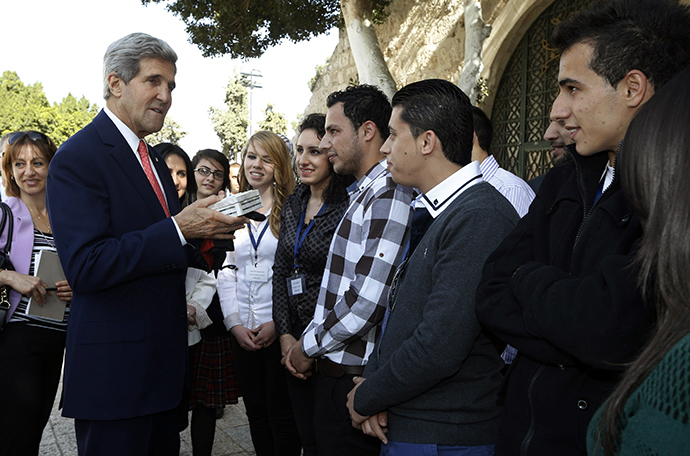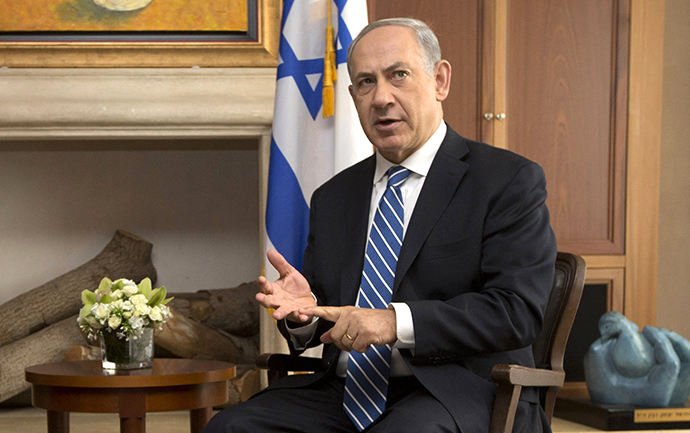Kerry dubs West Bank settlements ‘illegitimate’ as Netanyahu blames Palestinians for talks stall

As Israeli and Palestinian leaders exchanged blame for “no progress on the ground” in peace negotiations, US Secretary of State John Kerry said his government “always considered” Israel’s settlement expansion in the occupied territories to be unlawful.
While the US-brokered bilateral talks are yet to achieve an
apparent result, Kerry on Wednesday stressed that he and US
President Barack Obama are “determined” and “will not
stop” in efforts to pursue the possibility of peace.
At the same time, the top American diplomat made it clear that
the US does not approve of Israeli settlement policies, that it
is “not helpful” for the talks, and that the sides should
be ready for “real compromises and hard decisions.”
“Let me emphasize that the position of the United States is that we consider now, and have always considered, the settlements to be illegitimate,” Kerry said after meeting the Palestinian President Mahmoud Abbas in Bethlehem, referring to the Israeli settlement program in the Occupied Palestinian Territory considered illegal by most countries.

He added that “at no time” did the Palestinians agree to
accept the settlements as a part of a negotiated peace deal.
The Palestinian side has viewed the controversial Israeli program
as a major obstacle for the negotiations. Following the recently
announced plan for 3,500 more Jewish settler homes to be built in
the occupied West Bank, an anonymous senior Palestinian official
told AFP that the Palestinians would refuse to lead on the talks
if these “unprecedented settlement attacks” continue.
Despite Israel releasing a number of Palestinian prisoners, the
defiant construction may “explode” the situation, as after
all the talks “there is nothing on the ground,” Abbas said
in a speech broadcast on Monday. He dismissed the notion of a
prisoners-for-settlements deal with Israel, which has surfaced in
media reports.
Meanwhile in Bethlehem, the Israeli Prime Minister Benjamin
Netanyahu seemingly agreed with Abbas’s assessment of the
situation – but blamed the Palestinian side for the ongoing
crisis.
“I am concerned about the progress because I see the Palestinians continuing with incitement, continuing to create artificial crises, continuing to avoid, run away from the historic decisions that are needed to make a genuine peace,” Netanyahu declared earlier on Wednesday, also after meeting with Kerry.

Israel “will not be subjected to any restrictions concerning
settlement,” Netanyahu recently vowed at a meeting with the
Israeli right-wing Likud bloc, stressing that the Palestinians
are well aware of that.
Kerry, however, continued to downplay the tension, saying that
“despite the difficulties, both leaders, President Abbas and
Prime Minister Netanyahu, are determined to work towards this
goal.”
“As in any negotiation there will be moments of up and moments
of down, and it goes back and forth,” Kerry added as he spoke
in Bethlehem.
The shuttle diplomacy of the US Secretary of State helped to
revive the Israeli-Palestinian talks last July after a three-year
break. Despite widespread skepticism among Israelis and
Palestinians, a nine-month target window for an agreement has
been set. However, sources from both sides continued to claim
there has been no progress made, and there was no sight of
compromise on the most pressing issues.













